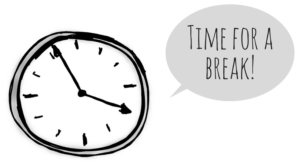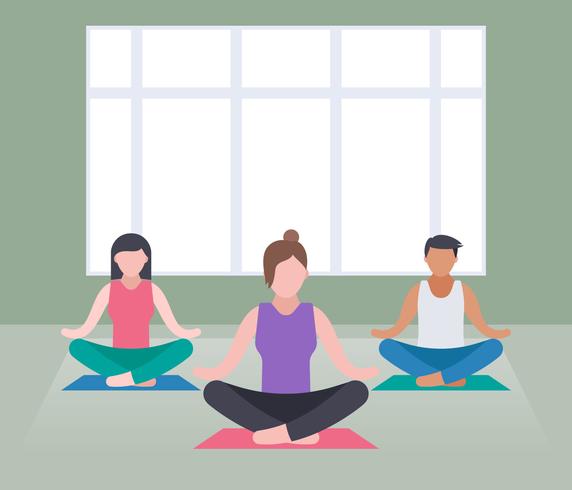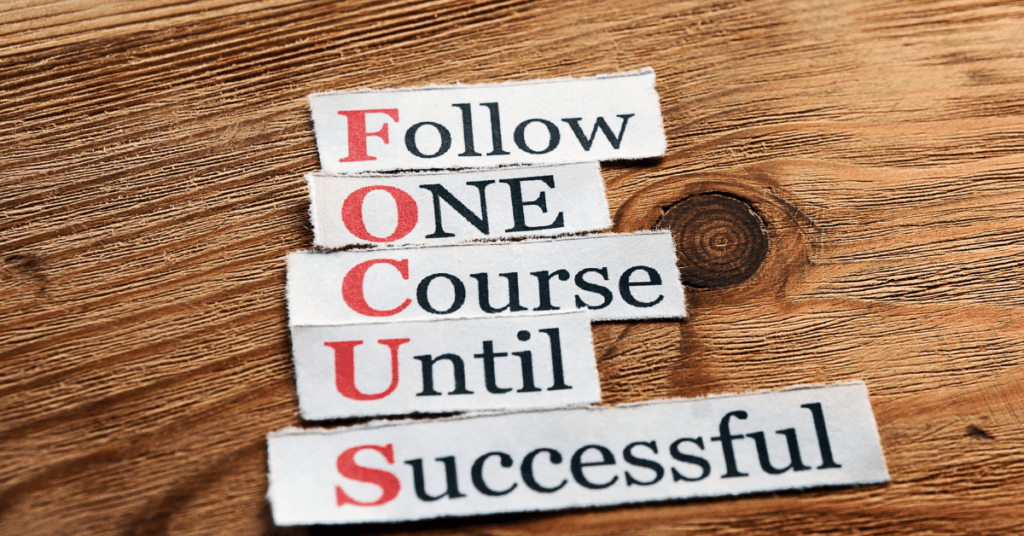In today’s society, it is easy to get distractions. The internet can be a distraction. It’s easy to change what you are doing. Sometimes the internet makes us forget about things we are doing or do not want to do anymore. I have had this happen before with studying. I had a plan to study for an exam but then found myself scrolling through Facebook instead. When distractions happen, it is hard to get back on track. This blog post will provide 10 tips that will help anyone stay focused!
Contents
What Is Focus?

The first step to staying focused is knowing what exactly it means. Focus means thinking about one thing, and not making mistakes. A focus can be a lot of things. For example, if someone asks you your name right now, instead of thinking about how tired you are or where you left your jacket this morning, just tell them. That is the focus!
Why Is It Important To Stay Focused?
There are a lot of reasons why focus is important.
- For one, if you want to achieve something, staying focused is key. You cannot get anywhere without focus!
- Secondly, when you have your focus in place, it makes everything else easier.
- Lastly, distractions can lead to wasted time and energy.
All of these reasons make staying focused a very important task!
10 Tips To Stay Focused For A Long Time
Now that we know what it means, let’s look at how we can keep our focuses and prevent ourselves from being distracted by outside factors. Here are some simple tips to follow:
Set Time Limits for Internet Usage

Today, there is a lot of information on the internet. So people might be distracted by this. When you are trying to study for an exam, do not open any tabs on the internet except those related to homework. If you save your notes or handouts onto Google Drive or Dropbox, they will be helpful while studying. If you must use social media during your studying session, set a time limit for when you can access it. For example, every 15 minutes only look at social media and then go back to studying after that short break is finished!
Exercise During Your Breaks

When we take breaks from our studies or other tasks, most people tend to get up and walk around or grab something small to eat out of boredom. These things make it hard to focus again. We won’t think about what we were doing before because now we will want to eat or talk with friends on Skype/FaceTime. If you hear your mind thinking about something that makes you sad and want to cry, then go and do exercises. You can do any type of exercise like jumping on a rope or using resistance bands.
Make Sure Your Workspace Is Organized

If our surroundings are cluttered, it is harder for our brains to focus as we are constantly seeing new stimuli that need to be dealt with. When studying, have all of your materials within arms reach so you do not have to stand up every time you want to reference something. If you can do this, then go to a quiet place with no noise. This might be at your house or someplace else. If it is not possible for you to do this, then use headphones that will make it so that there is no noise around you.
Take Notes In Class
Have you ever noticed that when someone is speaking, the only thing people do during that time is listening? This happens because our minds are focused on what they are saying and not distracted by other thoughts. When you take notes in class or when someone is telling a story, try writing down keywords. This way, your focus will stay on what the speaker is saying and not your handwriting. If you don’t understand something, write questions about it. This will help your brain stay active and allow you to pay attention at the same time.
Don’t Overload Your Brain with Tasks Before Bedtime

If we spend all day doing things like studying for an exam or working out then there is no reason why we should stop just because we are going to bed. If you have a hard time falling asleep at night, it might be because your brain is active. Try doing something relaxing such as reading or listening to calm music for about half an hour before turning off the lights; this will help tire out your mind and keep distractions at bay!
Set Specific Goals For The Week Ahead And Treat Them Like A Deadline

When trying to study for exams, set specific goals every week (Monday through Sunday) on what exactly you plan to accomplish by each of these days; when Monday comes around make sure not only do you get everything done but also cross it completely off your list! This technique can also be used for work projects or anything else that causes us stress. If we know what is waiting for us at the end of the week, it will be much easier not to procrastinate and put things off until later.
Take Breaks To Eat And Drink But Make Them Short Ones

It’s important that when taking a break from studying or another task, we do something other than just sitting around and scrolling through social media; by getting up and moving around we are helping our focus stay sharp. However, this does not mean that you should take a break for an hour or more as chances are you will become unfocused again afterward. Try breaking up your breaks into five- to ten-minute intervals so you can still get up and move around but also not lose too much time.
Divide Up Your Time Wisely

When we have a lot of things to do, it can be tempting to try and cram everything into one day or evening. However, this is counterproductive as our brains cannot focus on multiple tasks simultaneously and will eventually become overwhelmed. Instead, try dividing up your time wisely by allotting a specific amount of hours for each task; this way you know that when the hour is up, you need to move on to the next thing even if it’s not finished.
Have A Designated Place For Everything
This goes back to having an organized workspace; if everything has its place then it will be a lot easier to keep your surroundings clean and organized without feeling overwhelmed. If you find it hard to keep your things tidy, make sure that they always go back where they belong. For example, they can go into a box for books or a bin for paper.
Stop Multitasking And Prioritize What You Need To Do First

It’s important that we realize the benefits behind focusing on one task at a time; doing this allows us to better understand what needs attention first before moving on to something else. Multitasking is when we do many things at the same time. We forget to do some of the tasks and only work on some of them. So, it is best if we order what needs to be done from most important to least important so that we can finish it all. This will help us stay focused and avoid feeling overwhelmed.
What If I Am Not Focused?
If you ever feel that your mind is wandering off or have trouble focusing on any one thing, try to pinpoint what exactly it’s stuck on. Is it something worrying from the past? Do you have an upcoming event coming up in a few days that is causing anxiety? When you understand why your brain keeps going back to one thought, you can calm yourself down by doing something relaxing. For example, take deep breaths before continuing with what needs attention.
These are just a few tips that can help you stay focused when working or studying; by following them, you will be able to procrastinate less and get more done in a shorter amount of time! As always, if you have any other suggestions feel free to share them in the comments below.
Yoga Poses To Enhance Your Focus

There are many different poses that you can do to help focus your mind and avoid procrastination. Yoga takes time, but it is very beneficial because it helps clear the body’s energy while also helping with stress management, breathing practices, and relaxation techniques. The following yoga poses will get you started on improving your concentration levels:
- Tadasana (Mountain Pose). It helps you to ground yourself and avoid distractions
- Uttanasana (Standing Forward Bend). It improves the body’s flexibility, thus helping with focus on any task at hand
- Paschimottanasana (Seated Forward Bend Pose). It counteracts stress in your neck muscles that can help improve concentration.
- Vrikshasana (Tree pose). It helps release tension in your mind brought about by rushing or lack of care when completing tasks; also helps bring awareness to the present moment so you are not worrying about what might happen later down the road.
- Bakasana (Crane Pose). This pose helps in releasing anxiety and stress, which can be a big distraction when trying to focus.
- Garudasana (Eagle Pose). It is excellent for strengthening the mind and improving concentration as it requires you to hold two poses at the same time.
- Supta Padangusthasana (Reclining Big Toe Pose). It releases tension in your hamstrings and calves, two areas that are often tight and can cause discomfort during periods of extended focus.
- Savasana (Corpse Pose). Often considered the most important yoga pose because it allows your body and mind to completely relax, thus restoring energy levels and improving concentration.
- Ardha Uttanasna (Half Standing forward bend pose). It provides calming effect for both brain and heart, which improves concentration.
- Bhujangasana (Cobra Pose). It increases the ability to focus, thus helping you stay on task and avoid distractions that may arise throughout your day.
- Urdhva Mukha Svasanasna (Upward-Facing Dog Pose). This asana is considered an energizing pose for those who have been sitting at a desk all day long, as it helps stretch out tired muscles while also improving blood circulation flow in the body.
- Virabhadrasana I & II (Warrior Poses One & Two). They improve mental clarity and increase overall energy levels so you can complete tasks with much more ease than before.
- Ardha Chandrasana (Half Moon Pose). It increases focus and concentration, while also helping to improve balance.
- Dhanurasana (Bow Pose). This asana is excellent for toning the abdominal muscles and improving digestion; it also helps relieve stress and fatigue.
- Matsyasana (Fish Pose). It opens up the chest and allows more oxygen to flow into the lungs, which can be helpful when trying to focus on a task for an extended period.
The next time you feel overwhelmed or stressed about a task, try practicing some of these yoga poses to help increase your focus levels. Not only will you be able to fasten your work and with less distractions, but you’ll also be benefiting your mind and body in the process!
Conclusion
There are many different ways that you can focus on your goals. To find out what to do, make a list of all the things you need to do. Then break them into smaller steps that are easier. Make sure they are not too hard or take too long. You will be more successful if you break them up into small chunks. It is good to focus on one part of the work rather than thinking about how much there is left to do. Take care of yourself. Make time for things that make your mind fresh and you feel good. But it is important to also rest enough to recharge after a long day at work or school.
If you are looking for affordable Online Counseling MantraCare can help: Book a trial therapy session


